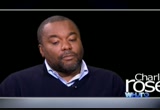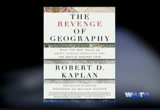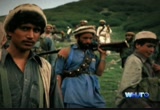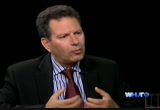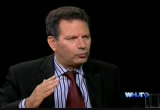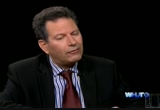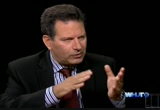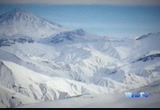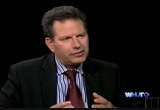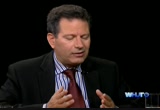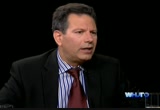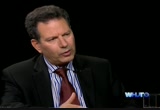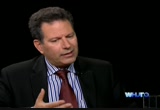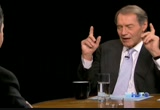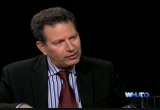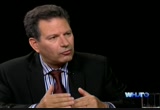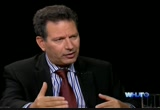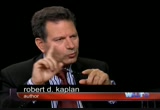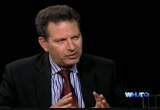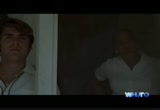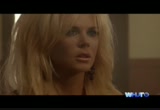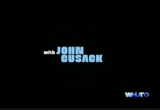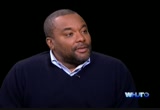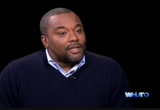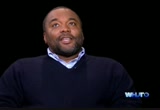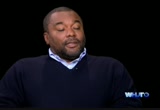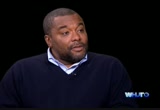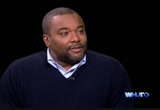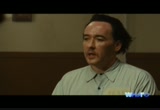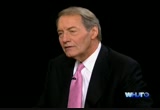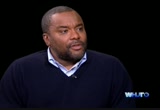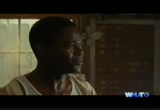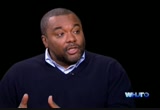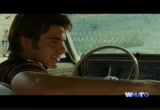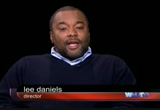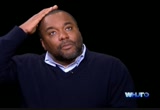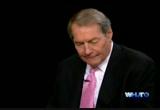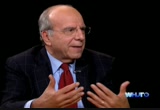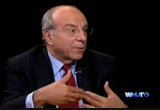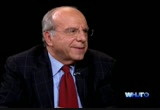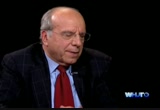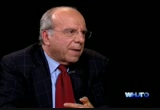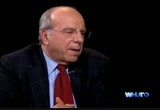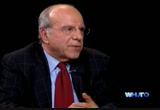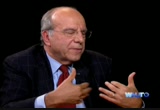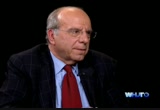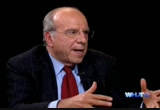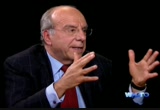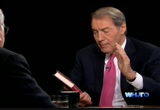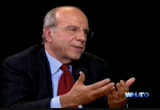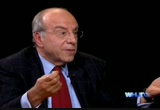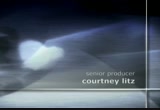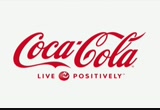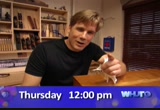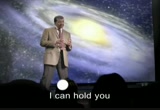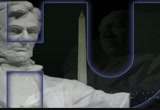tv Charlie Rose WHUT October 10, 2012 11:00pm-12:00am EDT
11:00 pm
>> rose: welcome to the program, tonight we connect politics to geology and we talk to robert kaplan, his book is "the revenge of geography." i've been thinking about it my whole career as a foreign correspondent that stretches back three decades to the early phases of the -- the early part of the last phase of the cold war and in every place i went it was physical features that changed things. i would go from -- every time i crossed the afghan/pakistan border i did so illegally with a mujahadeen group fighting the soviets in the 1980s. and when i'd go from afghanistan to pakistan or back and forth there was a line on the map but i didn't experience it. i just experienced the same indo islamic civilization of pashtuns
11:01 pm
on each side. so i said there's more here than the official lines on a map. it's territory that matters and how territory helps shape culture. >> rose: we continue this evening with the new movie directed by lee daniels called "paper boy." it stars matthew mcconaughey, zac ephron and nicole kid man. >> i did it may way. i bucked society and i have down the films that i wanted to do. movies about pedophilia, movies about interracial marriages when it was inappropriate to do b married -- movies about the south and race and sexual abuse and h.i.v. and these are topics that are just not talked about, charlie, that, you know, we don't see up on screen. >> rose: we conclude with stephen shepard. he's the author of "deadlines and disruption: my turbulent path from print to digital." a long-time career as editor of
11:02 pm
"businessweek" magazine >> when i became the editor of "businessweek" the chinese were wearing mao suits and the stock market was a thousand. so what happened was extraordinary change in society because of changes in business and the economy and technology and i had a front row seat for 20 years watching this. >> rose: lessons of geography, a new movie and a life stephen shepard lived in journalism when we continue.
11:04 pm
from our studios in new york city, this is charlie rose. >> rose: robert kaplan is here, he is chief geopolitical analyst and has been writing about foreign affairs for 25 years. in his latest book he says to better understand global issues we must look to a map. he examines how geography has influenced the balance of world power and how it can inform foreign policy in the future. it is called "the revenge of geography." i'm pleased to have him back on this program. welcome. >> rose: >> a pleasure to be here, charlie. >> rose: henry kissinger said-- and you put this at the top-- that "robert kaplan's research shines light on an ancient truth. geography has been the predominant factor in determinesing the fate of nations, from fay roenic egypt to the arab spring." how long have you been thinking about tht? >> my whole career as a foreign correspondent that stretches
11:05 pm
back to the early part of the last phase of the cold war. and in every place i went it was physical features that changed things. i would go from -- every time i crossed the afghan/pakistan border i did so illegally with a mujahadeen group fighting the soviets in the 1980s. and when i'd go from afghanistan to pakistan or back and forth there was a line on the map that i didn't experience. i just experienced the same indo-islamic civilization of pashtuns on each side. so i said there's more here than the official lines on a map. it's territory that matters and how territory helps shape culture. >> rose: okay, but i mean when you say "territory," define what you mean by "territory." because -- territory -- i mean culture didn't go right past a geographical boundary -- can it or not? >> of course it can. but ultimately culture is formed by the mountains, promtorys,
11:06 pm
inlets, deserts, features. take the united states. why did the 13 colonies develop as they do? one of the reasons was it was jam packed with natural well-protected harbors in the northeast. and the tempered zone of what is now the united states, it was last resource-rich part of the temperate zone that was settled by europeans at the time of the enlightenment and it had more miles of inland waterways than the rest of the world combined. so that enabled the development of american nationhood. these facts are so obvious that they get overlooked in the current debate. >> rose: i want to take different countries and look at it to understand your thesis, both in terms of their history and future and elements of their geography that make them who they are take china today. >> okay. all right. take china. china has two big geographical
11:07 pm
issues. on the one hand, china is big, it's vast. because it's stretching out in terms of the its corporate enterprises, its demography into the russian far east where there's always this timber, diamonds and gold that the chinese want. a hundred million people in manchuria over the boarder in the russian far east you've got seven million people. chinese are pouring in. central asia, china's starting to colonize central asia with energy pipelines, with grants, loans. southeast asia, thailand is falling into disarray, china's having a divide-and-conquer strategy throughout southeast asia. that's the good news if you're a chinese leader. the bad news is that the ethnic han chinese core is limited to central china and coastal china. but within china's borders you have inner mongolians in the
11:08 pm
north, you have uighur turk i can muslims in the west and tibetans in the southwest. all those minority areas is where all the water resources for china are. it's where 80% of the coal resources are. it's where a lot of the iron other and other strategic minerals and metals are. it's in the upland plateau regions ringing china. therefore, if you're a chinese leader and a westerner lectures you about opening up and liberalizing your society you get nervous. because you think if i do that there's going to be sustained systemic ethnic unrest in all of the peripherys of my country. >> rose: take germany. look at the history of germany and its future. >> germany has a natural boarder in the north with the baltic sea natural boarder in the south with the alps and further afield the carpathians a little bit. east and west plains, no natural border with france, none with poland. so germany has been different configurations on the map since
11:09 pm
charlemagne's empire at the beginning of the 9th century. it's expanded; it's contracted. it's very unstable on the map because it has no natural borders to the east and west. germany is also torn. the western part of germany was also part of maritime atlantacist europe, catholic rhinelanders. the other half was tied to central eastern europe so germany's political direction has often oscillated between east and west even as germany has been very aggressive because of its lack of land borders so it always feels it needs more space to compensate for the lack of geographical barriers. now, that's changed in the present time. nevertheless, the competition between russia and germany goes on today despite the fall of the berlin wall. despite the collapse of the warsaw pact. >> rose: going to the middle east, you said no part of the
11:10 pm
world is more urgent for geographers to inform american policy than the middle east. >> yes, the middle east you have several big geographical factors. you have the iranian plateau. you have the anatolian land bridge and you have the arabian peninsula. now, the iranian plateau is a natural geographical feature. and on it have been strong iranian states since antiquity, starting with the partians and going all the way through right up to the ayatollahs today. so there's nothing artificial about iran. also, it's a very strategic space because the iranian plateau boarders the caspian sea region in the north which where all the oil and natural gas and the persian gulf in the south, all the oil. and their persian gulf coast is almost 1,400 miles long when you count the inlets. it's more than twice as long as any other country's persian gulf
11:11 pm
frontier. coastline. so japan is -- iran is very geographically blessed. >> rose: okay, but i'd ask this question. if you look at a country there in the middle east, is it geography or is it natural resources that have shaped it or do you argue that geography and nature of a place provides or gives you some understanding of the natural resources that it has? >> i write about geography in the larger 19th century sense which includes culture, natural resources. i think map is including a lot of generalizations about a place. a lot of general knowledge. so culture, natural resources are all part of the study of geography. so you have iran. you have the anatolian land bridge which has been occupied by turk i can people since medieval times. another natural country.
11:12 pm
but the arabian peninsula is different. it's been divided up between different count these are artificially created. you have syria which is a sectarian ethnic stew. you have saudi arabia which you think of as natural but, in fact, is the contrivance of a family. and doesn't include all of the peninsula because you have yemen and all the gulf states. and the saudis look at their country as -- they see it -- they know how artificial it is. they look at iran, they know that they -- their youth have this toxic combination of social media and unemployment. which is like the worst combination you can have if you're a ruler trying to keep your family in power. >> rose: and 60% of the population is under 20. >> right, yes. whereas iran has gotten its population growth rated a mirbly under control. it has one of the largest populations in the middle east, like 75 million, but the rate at
11:13 pm
which that population is growing has slowed down to about 1% or a little bit more. >> rose: in the history of being on water, that was an important quality in projecting economic success. >> yes. coastal nations have an advantage. john keegan, who recently died, the great military historian, wrote in his book on north america that democracy developed as robustly as it did in the united states and england because they were virtual islands. england is an island, the u.s.a. virtual island and he is the they were protected, in his words, by the land-bound enemies of freedom. and safe, protected by waters, a civil society could develop over centuries. >> rose: but look at our future and you argue it's tied in some
11:14 pm
ways to the geography and our proximity to mexico. >> yes, the united states is a virtual island. atlantic, pacific, canadian arctic to the north, just 33 million middle-class canadians to the north living within 100 miles of the u.s. border. but south of the border half of that boarder is artificial and you have a vibrant big society a third the population of the u.s. much, much poorer. there's a big -- the difference in living standards between the u.s. and mexico is arguably the greatest difference of living standards than any two contiguous countries in the world with the exception of north and south korea. off very young population in mexico. average mexican is 25, average americans 37. mention key has a vibrant developing economy but the northern third of it is controlled by criminal drug
11:15 pm
cartels. so the kind of state mexico has evolved into will have significance to the kind of society the united states vovls into because hat tin history is demographically moving north. reclaiming the. >> rose: and you only have to look at the political conventions to see how it's influencing american politics. >> right, when you see people become extreme and emotional about an issue you know that that issue a really difficult to solve hot-button issue that in this particular case is rooted in geography. >> rose: does technology collide with your theory? >> no, it doesn't. technology only makes -- does not negate geography, it only makes it more claustrophobic and precious in the sense that the finite size of the earth is now a force for instability as megacities become bigger and
11:16 pm
bigger and social media can inflame mobs in badly lit megacities at virtually the speed of light. so i was in malaysia seeing a big demonstration against what? against palestine. against the israelis occupation of palestine a malaysian told me that palestine is existential. it's totem i can to muslims. >> rose: so you were in malaysia it could be indonesia, too, the largest muslim population. is that more of a question of religion or geography or when you talk about geography you're talking about religion? >> it's about technology creating new geographical communities where you can have a pan islam.
11:17 pm
my previous book was about the indian ocean. >> rose: "monsoon" as i remember. >> right and the islam in southeast asia is very different --. >> rose: you talk to them and that's what they tell you. >> but because of technology muslims from one part of the greater middle east to the other part and to the muslim community in southeast asia can now interact with each other and rediscover their faith as a unit rather than a separate groups. so it creates a new geography of islam. it's still about space so each place interacts with every other so in order to understand it you have to understand the connections and disaggregate it and understand that people become engaged about who owns the mountains in kashmir. best example is india china. india and china, two gate
11:18 pm
civilizations, developed completely separated divided by the high wall of the himalayas. now indian and chinese strategic planners have this new map of eastern eurasia where they compete with each other because chinese warplanes based in tibet now have the indian subcontinent as part of their arc of responsibility. indian satellites can spy on chinese military bases so the indian and chinese now have suddenly discovered this map of eurasia where their military interests overlap which didn't exist 50 years ago because the technology would not have allowed for it. so the world is flat is a true thesis up to a point. up to a point. mountain ranges, space, deserts still matter. >> rose: when you see countries that have historically been enemies of each other, is it most often explained by territorial ambition? geography or is it explained by,
11:19 pm
you know, the desire to have influence? >> when you look at the borders on the map, what the map defines as the human differences-- humanity's divisions between one country and another, between this country and that-- that's why the map itself is somewhat rhett regrade, somewhat reactionary to take the map at face value because the positive thing to do is look at how humanity can come together but the map shows there really still are differences and the best place to see that is in east asia with this battle for who owns what. i mean, they are actually battling over not islands but futures because in high tide they're underwater. >> rose: if you look at the emerging nations where they have had significant sometimes double-digit economic growth rates how much does it have to do with geography, a.
11:20 pm
how much does it have to do with demographics, b. and how much does it have to do with some other factor? >> all right, first of all, it has a lot to do with human agency, with proper political choice and decisions. this book does not argue about that, you know? it accept it is fact that geography does place constraints but they're broad constraints within which policymaker cans act for better and worse outcomes. but if you have a long coast, that helps. >> because you're open to the cosmopolitan world through sea trade. even in our jet age, 90% of all commercial goods that travel intercontinently do go by sea, not by air. so coastlines and navies still matter and if you have a lot of good naturally protected harbors that's even better. >> let's assume the president of the united states either reelected or just elected calls you up and says look, i hear you've written this book about the revenge of geography.
11:21 pm
i'm beginning to have a series of conversations about what america needs to be and what are the imperatives of our time in a very competitive and challenging era? tell me what i need to know about the u.s. geography that goes beyond what you and i have talked about about mexico? >> what the president of the united states needs to know is that the u.s. has to tend to its own pastures in the greater caribbean. doesn't mean isolationism, it just means paying attention to the transition away from chavez, because he's very ill in venezuela, open up relations with cuba, do as much as we can to help mexico so that we have our own hemisphere in order and that will allow us with the energy and concentration to affect the balance of power favorably in the eastern hemisphere. >> rose: the book is called "the revenge of geography: what the map tells us about coming
11:22 pm
conflicts and the battle against fate." robert kaplan, thank you. >> my pleasure. >> rose: good to see you. we'll be right back. stay with us. >> rose: lee daniels is here, he is a director, a producer and a screen writer. he produced "monster's ball" in 2001, directed "precious" in 2009. "precious" won two academy awards. now he's made a new knew vie set in florida in 1969. here's a trailer for "the paperboy." >> who was that? >> i'm looking for the officer jansen of the miami times? >> i work for the "times." >> this here is ms. charlotte bless. >> not for long, hillary and are engaged to be married. everything you need to know about hillary van wetter is in these boxes and very exciting correspondent in the bottom box. i want to thank you for helping me get hillary out of the hell hole. >> i wouldn't book the honeymoon
11:23 pm
just wet. we'll find out what came about. ♪ man is dangerous ♪ loving him is dangerous >> it's about the murder of sheriff call. i understand the judge allowed testimony based on evidence that he knew was false. ♪ that man is dangerous -- >> he's your paper sfwhi what are they gonna do for him? they say they found the sheriff's body at 6:00 a.m. but he was away when he was killed. what really happened? >> looks young to be a journalist. >> you don't love him. >> you don't know that.
11:24 pm
hillary ain't so bad. and i'm not so good. i've got ood side. >> tell him be've got hillary out. the governor's going to pardon him. (screaming) >> charlotte -- >> what do you want me to say? >> get out of there! >> you put your hands on me again i will cut them off! >> i know what you came for. i got what you want. >> you really messed up this time. >> you son of a bitch! come on! >> rose: i'm reading about this movie. it said "big, bad, mean" in one of the reviews in the trailer, so you liked that. todd mccarthy, hollywood reported "said "sordid goings on
11:25 pm
in 1969." mar rir corliss said "in a film show -- the paperboy has a pulse, the paperboy revels in the lure of the lurid. this adaptation of pete dexter's novel barges into that mythical land the american south, takes root in the sins of the flesh and the soul and digs deep down and dirty." >> yeah, we do. we dig deep, down and dirty. >> rose: it's said nicole kidman called you up and said she had to have this part. >> yes, only if she did her own makeup. and she put on 15 pounds. >> rose: so you told her put on 15 pounds and put on your own makeup? >> she had to to understand this woman and to sit with people -- women that had men in prison. so she sat with a group of women that wrote men in prison, one of which was my sister and she sat with the these women and --. >> rose: to understand what
11:26 pm
they're about? >> yeah, their psyche. what makes them tick. >> rose: what's the story? >> the story is of a murder investigation that takes place in florida and a coming of age kid. the kid is zac efron. 20. coming of age. sort of like "precious" really. except the backdrop is a murder investigation as opposed to a kid with h.i.v. and overweight and illiterate being --. >> rose: but you went through several actors who were going to play and didn't play for one reason or the other, including bradley cooper and others. >> uh-huh. >> rose: but then you worked it out, you got mat mcconaughey. >> what happens is, because we don't have money on our movies, they have to take real jobs. >> rose: big salarys? >> yeah. so we go through this carousel of merry-go-round of actors
11:27 pm
until we are able to nail everybody and it becomes -- the universe glides. >> rose: some people who saw it at cannes with unforgiving in their criticism. one critic, i think it may have been rex reed, said "avoid at all cross a trash about southern racism, an awful slab of --" so, what do you say to people like that? >> i say that that everybody's entitled to their opinion. i think that the -- i think what critics want from me is "precious." what they want from me is the butler. you know, i think this that if there were from -- pedro al mode vary was going to direct the film at one time and if pedro were to have directed the film or a german filmmaker we wouldn't be having this conversation. that it is -- i told you in the
11:28 pm
beginning when we first sat down during "shadow boxer" that i'm not just homo, i'm ghetto and euro. so there's a little bit of all of that in all my stuff. and i think to understand me is to love me. i think that i am -- you know, you have to -- you're judging me on my -- on my background and where i come from and you're expecting something from me if i sit by that box. not good. that's what i think. >> rose: zac efron. tell me about the casting of him. >> he's great. he's fantastic. >> rose: who does he play? >> he plays a kid that is in love with -- trying to find himself, in love with his -- he's in love with nicole kidman and he's learning about the world, he doesn't know that his brother -- he doesn't know about his brother's sex life and he learns about racism through macy gray in a very powerful way and
11:29 pm
subtle way. >> rose: what does he learn from macy gray? >> well, there's a scene in the film where he calls david who plays yardley in the film in the middle of a -- they're reporters trying to get to the bottom of this case and he calls him a (bleep), zach does. and macy has raised him his entire life. he's like her sorn. that's her son. the mother's not around. and so in it you would think that when it happens macy overhears it so you would assume that macy would become upset but she's not because she loves him so deeply and she's affected for him. she's bothered for him. she tells him "you know, if you say that again, somebody will cut your little ass." because she loves him so much. that's the help i'm used to
11:30 pm
that. 's my family. that's the help that my aunts were like --. >> rose: gave you? >> no, they were the help. they took care of white people growing up and that's -- those are the stories i heard. the love that they had for the kids that they took care of. it was like their own. and so it was important to show that side and i think macy's done an exquisite job doing that. >> rose: john cusack? >> terrifying, electrifying, fabulous. >> rose: he's the man in prison? >> yeah. so exciting that i had him play richard nixon request -- >> in "the butler." >> yeah, terrifying, electrifying. something you've never seen before from him ever and you've never seen it from matthew mcconaughey ever and nicole kidman ever. >> rose: take a look. this is a clip in which -- speaking of these actors. nicole meets hillary van wetter played by john cusack.
11:31 pm
>> you got 15 minutes, no physical contact of any kind. no tape recorders. i'll be right outside this door. no object may be passed to this prisoner. >> mr. van wetter, my name is ward jansen, this is my associate, yardley aikman. >> you ook look like your picture. >> i do. thank you. >> the these your paperboys? >> uh-huh. >> what they gonna do for us? >> they're gonna save you. >> rose: what's the dynamic of the relationship there? >> she's never met him. she's been writing to hip and
11:32 pm
she's fallen in love with him. >> rose: why? >> because she writes prisoners and she's found --. >> rose: somebody responded to her in a way that toucheder? >> so she's trying to get him out. and he's using her to get out. the question is, did he murder the person that --. >> rose: so you've got a relationship and mistly. >> and that was the first time that they saw each other. >> rose: you just said to me this is your best work? >> i think so. >> rose: to date. >> i think so. >> rose: why do you think that. what did you get here that -- >> you grow! you grow. i learn more about people. i grow and learn how to handle actors, how the handle the camera, how to tell a story better. i think it's very disturbing to a lot of people because it's so in your face that it's just -- in a way that we have never seen it before. even the people -- i don't know
11:33 pm
about rex but those that have seen the film and criticized the film have walked away and said "this is something you can't miss." >> rose: good reviews? >> it's been split 50-50. either you love it or hate it. that's a good thing. i'm happy about that. they're loving everything or they're talking about it. >> rose: so what did you do to get a performance out of matthew mcconaughey? >> just really honest with him. opened up. told him i wasn't going to take anything but the truth. i studied every film he'd ever done and there was a trust and a mutual respect. i love him. i can't wait to work with him again. >> rose: take a look. this is the scene in which charlotte meets the paperboys. here it is. >> this is miss charlotte bless. >> not for long. hillary and i are engaged to be married. >> hello, miss bless, i'm ward. >> mr. ward, good to finally meet you. >> you didn't mention the
11:34 pm
engagement. >> why don't you clean yourself up? >> well, he just proposed. oh, that looks nasty. >> how did i do that? >> excuse me a second. >> i'm yardley, we thought you and hillary hadn't met. >> only in pictures. but we've been writing each other for a month and we understand each other. >> ward, where should i put her file? >> everything you need to know about hillary van weter that's been in the papers is here in these boxes and the voor exciting correspondence is in the bottom box, in case you're interested. >> mr. jansen, i want to thank you, i want to thank you for replying to my letters and helping me get hillary out of that hell hole. >> i wouldn't go booking the honeymoon but we are going to find out about this. >> thank you, thank you so much. >> nobody deserves the death penalty, ms. bless, not even hillary van wetter.
11:35 pm
>> rose: so you've got a lot of characters here. you've got a man in prison, mcconaughey, you've got nicole. whose story is this? >> it's the paperboys story. it's zac's story. it's zac's story. it's a coming of age story. he's learning how to be a man, how to love himself, because everybody around him, they don't love themselves. >> rose: and he's learning how to love himself? >> yeah, he has learned at the end of his journey to love himself. >> rose: this is where zac comes in in meeting with nicole kidman. charlotte. here it is. >> miss bless wanted to look at the prison. jack's first assignment was to take her there. >> if you can fallout n love outside of a normal relationship thing, we have these powers, telepath i can powers. hillary and i have that kind of connection, you see?
11:36 pm
why ain't you in college? huh? >> i was a swimmer when i was in school. >> no kidding! >> yeah. >> i was a swimmer! >> you were? >> uh-huh. i swim like a mermaid. so? >> well, we was drunk one night and i just -- i lost my temper and -- well i emptied the pool. >> at your college? >> the university of florida. they call that vandalism, i guess. it's actually not as easy to do
11:37 pm
as it sounds. >> do you lose your temper often there's places full of boys just like you lost their temper one day. >> rose: sexy. >> she reeks of sex. >> rose: now there was something about she didn't want to use the "n" word? >> yeah, she didn't. that was crazy. it was the third day of shooting and in it i asked her to use the "n" word. you've got to say this word to this guy and she says "i won't do it." you don't tell me no, charlie, you just don't do it. but -- so i went home, i had a little bit of a chip on my should we are her and i went home and i called my producer and she said, lee, on day one she bent over a pink washing machine and had sex with john cusack.
11:38 pm
on day two she urinated on zac efron on day -- on the beach. on day three she she won't say the "n" word. i think you can forgive her. i said i guess so. she's fantastic in this film. >> rose: you've seen good performances. she nailed it? >> it was like working with mo'nique. it was like working with gabby. >> rose: from "precious." >> uh-huh. it was like working with helen mirren. it was beyond that. it was just sort of -- like you know when i'm in 'n sync zinc with you it's like making love. there's no physical contact, we are doing the tango together and we're one. >> characterize the cinema you make. >> it's lee daniels. >> rose: what's the common denominator between all those films other than lee daniels? >> well, there's a theme of
11:39 pm
family. >> rose: really? >> yeah, there's a theme of family. there's a theme of that that gray area that we all live in that gray area that we live in which s not wrapped up in a bow, there's nothing nice about life. life is rough. >> and you intend to show it? >> every second of it. >> rose: good to have you here. >> good to be here. >> rose: lee daniels, the movie "paperboy" is in theaters now. always good to see you. >> thank you, charlie. >> rose: back in a moment, stay with us. steve shepard is here, he served as senior editor at "newsweek" and editor-in-chief of "businessweek" from 1984 to 2005. as founding dean of the new york university's school of journalism, he's training new journalist. in many ways, his story is the story of journalism's evolution. he tells the story of this new
11:40 pm
book "deadlines and disruption, my turbulent path from print to digital." welcome. >> rose: so you're not a guy who when you left "businessweek" said "i'm going to write my story." >> i had no idea. i left "businessweek" to start a new graduate school of journalism and the book happened because after four or five years when we were reasonably successful i thought i ought to tell the story of how you start a school from scratch at a time of critical disruption in journalism. where do you get the fact you will any how do you get the curriculum? how do you raise money? i thought it was something that would end up in the library and before i knew it i had to be telling about me and why i'm -- was there, what my back ground was, what i stood for, what my values were. >> rose: when you do that was it's easy to talk in the first person whether than being what you had been? an editor and reporter? >> i was a writer to begin with
11:41 pm
so i found it easier than i imagine, particularly the early stuff, the memoir stuff about growing up and going to school and getting started in journal and talking about why did i study journalism? that i found pouring out of me. just came out of my head. >> rose: once you start, one thing unlocks another thing unlocks another thing. >> it's true. the last part of the book was harder where i try to contemplate the future of journalism and how to support --. >> rose: so there are parallel stories, your life and journalism. >> that's correct. >> rose: you can't say would you do it differently if you were doing it today because all kinds of things that existed today didn't exist then but looking at the time you made the choices and the options you had would you change anything significantly. you? >> my life? um -- you know, it has worked out so well that i can't look back and say, gee, if i had only done this instead of that it would have been better.
11:42 pm
it was a little strange to study engineering and work for an a year and a half and get a master's when in fact i wanted to be a journalist. >> rose: so why did you do it? >> well, you know, it was partly the era of post-sputnik and i had an uncle who was an engineer and i really didn't know. culturally my background growing up in the bronx i didn't understand what it was like to be a journalist. how do you go about being a journalist. i didn't know so i took the path of looers resistance. >> rose: and found out you could apply those kinds of -- the training you had and the way of thinking that you developed? >> specifically i started as a science writer which was my bridge from engineering to journalism. >> rose: science writing has exploded, too, and business writing has exploded. >> absolutely. the turning point to business journalism-- which i thought of as a reporter when i first started, it changed in the mid-'70s with the arab oil embargo, the near bankruptcy of new york city and stagflation, that is inflation and recession
11:43 pm
at the same time. and all of a sudden business journalism became a front page story. and i saw that i was teaching at columbia at the time i was working at "businessweek" and i saw that happen. the idea of business today. if you had it to do over would you have gone into business or reporting? that's where you ended up. or would you have been more interested in international affairs. more interested in domestic politics? more interests in science? >> i lived and worked in london for a couple years so i had a taste of that and i was national affairs editor of "newsweek" so i had a taste of the politics. i would say that economics and business journalisim in the time that i was doing it was fabulous because we saw the emergence of china and india, we saw the tech revolution. when i became the editor of "businessweek," the chinese were wearing mao suits and the apple macintosh was a novelty and the stock market was a thousand. so what happened was an extraordinary change in society
11:44 pm
because of changes in business and the economy and technology. and i had a front row seat for -- >> you went to business in 1966? >> well, yes. >> rose: what was it like then? >> it was a world of difference. it was always a very richly reported magazine with a large bureau system. but it needed to get better and, you know, lou young, who is one of my predecessors really dade very good job of modernizing it and bringing it into the technology revolution and covering silicon valley very early, covering the information revolution and i was able to build on that. yeah, these magazines --. >> rose: did this contribute to the notion of the c.e.o. as star? >> well yes. for better and worse. we get criticized we're glorifying c.e.o.s. >> rose: well, the idea is that it sells magazines, i assume?
11:45 pm
>> well, i felt that it was important to understand who was running these large corporations. what who are they? what is their strategy? i think the business coverage didn't have that. it was dry corporate financial earnings and that sort of thing. so i pushed the magazine to do more people stories and put more people on the cover. sometimes they were villains not heroes. and some people criticized us because we were aggrandizing one person as if the c.e.o. was the whole company and i think by and large we did it pretty well. >> rose: what's the attraction of being an editor rather than a reporter? >> well, it's a little like what i'm doing now at the school i think a real similarty between being an editor and being a teacher and it has to do with bringing out the best in other people. and helping them tell the story that they want to tell whether they're young writers or students or even experienced writers to make them better at
11:46 pm
what they do. all in the purpose of having a magazine or newspaper or whatever it is fulfill its mission and do a terrific job you have to have a strategy and no what this reporter and that reporter is doing and what you want to do. but the gratification of the job comes with having a magazine that's successful and works but bringing out these young people and their talent. >> rose: what change did you bring to "businessweek" in your tenure there as the editor? >> well, we stepped up investigative reporting. we stepped up narrative reporting. we globalized much more, the magazine. and, you know, i think we meat a better -- >> what was the identity of these three magazines at the time that you left? "businessweek," "forbers," "fortune". >> yeah, first of all, this frequency which mattered in those days "forbes" was much more of a financial magazine magazine.
11:47 pm
business week was a global magazine. the frequency made a big, big difference because you could jump on stories and use the news as a point of departure to tell an analytic story, which was the stock and trade of "businessweek." >> rose: what happened to "businessweek"? >> well, i left in early 2005 and things deteriorated. >> rose: why did it deteriorate? deteriorated to what? >> i was there at a very, very good time. i had the wind at my back and my successors, as i say in the book were trying to walk up a down escalator. it was a tough time. "businessweek" wasn't the only magazine to fail. u.s. news stopped publishing weekly. "newsweek" was sold for a dollar. >> rose: "newsweek" was sold for a dollar a year and a half ago. >> but that was only three weeks after business week. but it's important to say --. >> rose: but what was the difference between you -- i've
11:48 pm
forgotten the year you retired, left -- >> '05. >> rose: and when it was sold. >> '50 9. >> rose: so four years. >> so between '05 and '09 the deterioration continued because of outside or inside factors? >> i wasn't there but i think the answer is both. i think these outside factors that --. >> rose: the changing times being outside factors? >> yeah. that was the outside factors. internally there were changes in the magazine that i didn't think were for the best but it wasn't for me to say and i didn't say and there's a little bit in my book about it. the important point is a lot of magazines, weekly magazines, did very, very well during this period of external change. the "economist" did very, very well, the "new yorker" did very well, new york magazine did very well, "time" magazine did very well. so what i concluded is that even a good magazine is not guaranteed of success in this day in age. it's tough but a weak magazine will surely fail. story selection is the key to
11:49 pm
great journalism. that's the vision of the editor and the staff. >> "vanity fair" has done that. show me a great magazine and i'll show you a great editor. and show me a great television show and i'll show you the fact that it's in the image of the person who at the core created it, whether it was ted koppel or whoever it might be. ted when he created "nightline," johnny carson the way he created -- david letterman the way he created david letterman. it's always an extension who have that person is and their own obsession. like companies. >> listen i'm so grateful this magazine has survivaled because bloomberg bought it and has recreated it. absolutely. >> rose: when you set out to create a journalism school it was in the midst of the digital revolution. was it a hard sell to do it? >> no. one of the reasons we started the school was because it was being started at a critical time for journalism and we could
11:50 pm
start from the ground floor and design a school for this new world. we didn't know everything but we were pointed in the right direction twitter didn't exist when we started so we had to keep the spirit and keep changing. what we've realized is that it's only partly about journalism. is more journalism being done today by more people than ever before. it's been democratized and decentralized. all of which is good. but the critical issue now is a business issue. how do we support journalisim in the digital age? quality journalisim in the digital age? that is what i'm focusing my attention on now. newspapers, what are they going to survive? there's a chapter in this book called qlt the daily bugle survive"? >> will it? >> if they do the right things. they have to charge for content. the "new york times" is showing the metering system does work. about 20% of the 1400 daily
11:51 pm
newspapers in the united states now have metering systems. it doesn't hurt traffic the way people thought so it's a new revenue stream. >> rose: people are willing to pay to get what they want? >> and it doesn't hurt traffic, that's a big revelation. we have to change the way we sell advertising on newspapers. it's hard to monetize traffic on the web. we need to go to more of a television model where there's sponsorships. we need to do more video. we need to take advantage of what the internet offers which is targeting and personalization, that's what this medium does. more ads have to be targeted to people on this medium. i think -- >> that's the new reality of advertising, targeting media. >> and i think they have to be very, very conscious of cost structure. what's going to happen over time is that the print paper is going to fade away like silent films in an age of talkies because we can't support the costly infrastructure, printing and postage and distribution, paper
11:52 pm
and trucking and all that stuff. you know what? that's okay with me as long as the journal schism there. we are not in the printing business or the paper business we're in the journalism business and we can't lose sight of that. we have to make this transition. >> rose: as arthur has said at the "new york times." the "new york times" is not how we distributed it. the "new york times" is how we are and how we look at things and those that seem to prevail and are most in demand for have what qualities in your judgment? >> well, they have to have journalistic qualities to begin with. they have to utilize technology in the proper way. one of the things that worries me a bit about the use of social media is that you choose who your friends are. you choose who to follow on twit i worry people are choosing to follow and friend people who have the same views as they are.
11:53 pm
>> rose: theory is also applicable to what people watch on cable television. >> yes, msnbc one way, fox the other. that's right. and that worries me. where is the open mindedness. one of the reasons there's so few people who haven't made up their mind is that people are watching and tweeting and following the people who share their views so they're not open to new ideas and they don't want to hear new ideas, they want their preconceived notions to be ratified basically. it war worries me. >> rose: and the responsibilities of journal schism to put that out and make sure the voices of analysis and assessment that are unbiased and not are not trying to convince -- you know, as we said, speak the choir. "deadlines and disruptions." deadlines because that's been your life. disruption because of the world you live in now in which the media is being disrupted by a digital revolution. >> right.
11:54 pm
what people don't realize is -- i call it my turbulent path but it was a traumatic path because those of us who grew up in the traditional world took our role very seriously. we were filtering in information for readers. we were trying tell them what was important to analyze and provide context on our best days something approaching wisdom. all of a sudden we got dethroned aen the internet came along product frs it was a process, it was a conversation, that was two-way street. and people could do journalism. they could commit acts of journalism even if they weren't journalists. it's a very different world and a lot of us had to go through this process of accepting these changes and realize that by process of convergence we could get the best of the traditional and best of the new. >> rose: the idea that i found on the internet can be scary because you can pretty much find on the internet anything you want. >> yes. >> rose: and sometimes you wonder where those kinds of opinions come from and what they're based on and to know and trust a voice is an important
11:55 pm
quality. >> well, you know, brands, media brands still are important. individual brands, you learn who the trust or whose to watch and who to listen to and follow and so on. >> rose: thank you, steve. "deadlines and disruption, my turbulent path from print to digital" stephen b. shepard. thank you for joining us. see you next time. captioning sponsored by rose communications captioned by media access group at wgbh access.wgbh.org
141 Views
IN COLLECTIONS
WHUT (Howard University Television) Television Archive
Television Archive  Television Archive News Search Service
Television Archive News Search Service  The Chin Grimes TV News Archive
The Chin Grimes TV News Archive 
Uploaded by TV Archive on

 Live Music Archive
Live Music Archive Librivox Free Audio
Librivox Free Audio Metropolitan Museum
Metropolitan Museum Cleveland Museum of Art
Cleveland Museum of Art Internet Arcade
Internet Arcade Console Living Room
Console Living Room Books to Borrow
Books to Borrow Open Library
Open Library TV News
TV News Understanding 9/11
Understanding 9/11
